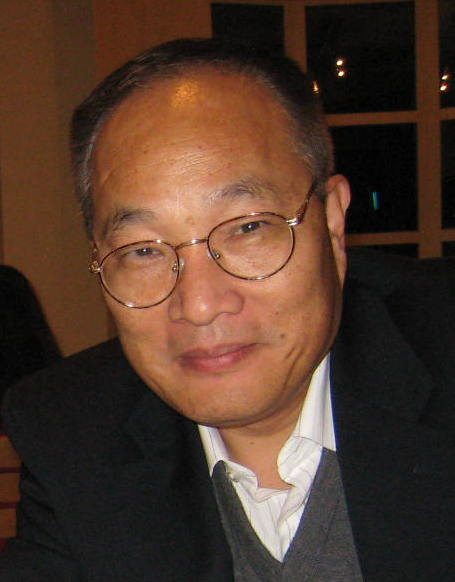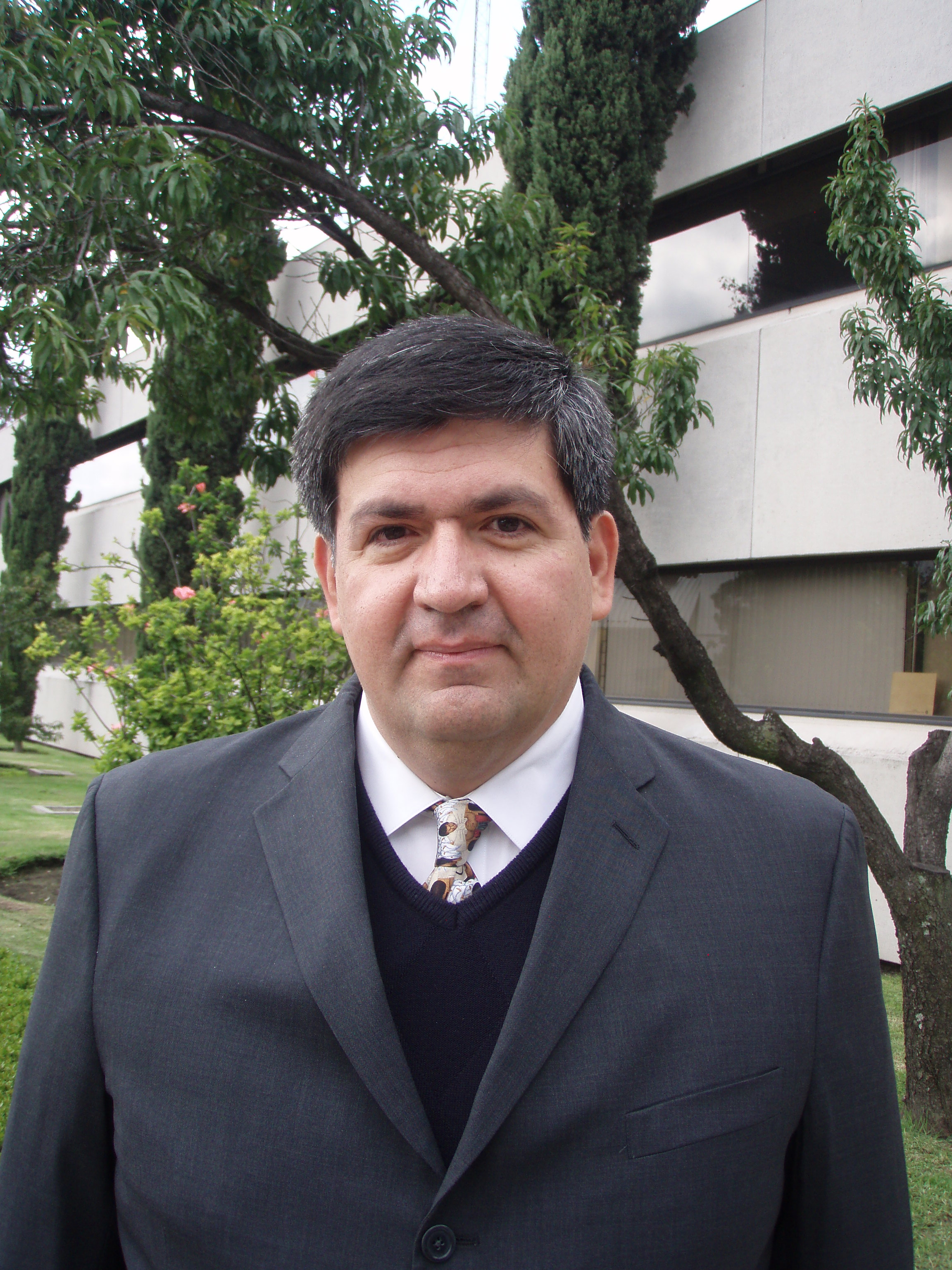Speakers
Article Index
Confirmed Speakers
 |
Kalyanmoy Deb | Michigan State University | USA |
 |
Jian-Qiao Sun | UC Merced | USA |
 |
David Romero |
UNAM | Mexico |
 |
Manuel Bogoya | Pontificia Universidad Javeriana | Colombia |
 |
Carlos Hernández | Mutuo Financiera | México |
 |
Carlos A. Coello Coello | CINVESTAV-IPN | México |
| Extreme-Scale Evolutionary Optimization: A Case Study on a Billion-Variable Resource Allocation Problem | |
 |
Kalyanmoy Deb Michigan State University Talk Abstract: Optimization methods and practices are around for more than 50 years, but they are still criticized for their "curse of dimensionality". In this talk, we shall look at a specific large-dimensional integer-valued resource allocation problem class from practice and review the performance of well-known softwares, such as IBM's CPLEX, on the problem. Thereafter, we shall present a population-based heuristic search algorithm that has the ability to recombine short-sized building blocks, despite having overlapping variable linkage, to form larger-sized building blocks. The process is eventually able to solve a billion-variable version of the problem to near-optimality in a polynomial computational time, making the application one of the largest size optimization problems ever solved. Bio: Kalyanmoy Deb is Koenig Endowed Chair Professor at Department of Electrical and Computer Engineering in Michigan State University, USA. Prof. Deb's research interests are in evolutionary optimization and their application in multi-criterion optimization, modeling, and machine learning. He has worked at various universities across the world including IITs in India, University of Dortmund and Karlsruhe Institute of Technology in Germany, Aalto University in Finland, University of Skovde in Sweden, Nanyang Technological University in Singapore. He was awarded Infosys Prize, TWAS Prize in Engineering Sciences, CajAstur Mamdani Prize, Distinguished Alumni Award from IIT Kharagpur, Edgeworth-Pareto award, Bhatnagar Prize in Engineering Sciences, and Bessel Research award from Germany. He has been awarded IEEE CIS's "EC Pioneer Award". He is fellow of IEEE, ASME, and three Indian science and engineering academies. He has published over 490 research papers with Google Scholar citation of over 116,000 with h-index 110. He is in the editorial board on 18 major international journals. More information about his research contribution can be found from http://www.egr.msu.edu/~kdeb. |
| Cell Mapping Methods - Algorithmic Approaches and Application | |
 |
Jian-Qiao Sun University of California, Merced, USA Talk Abstract: Research collaborations of University of California at Merced, CINVESTAV-IPN in Mexico and Tianjin University in China have advanced the study of multi-objective optimization problems, and resulted in a recent publication of a book printed by Springer. This talk presents an overview of the book and a summary of the research advances. In particular, we first discuss several engineering applications including multi-objective optimal control design and structural-acoustic design for minimum sound transmission. We then discuss some algorithmic development of the cell mapping methods for various applications. Discussions will then be directed to the future directions of the cell mapping based research in the framework of evolutionary computing and optimization. Bio: Dr. Jian-Qiao Sun earned a BS degree in Solid Mechanics from Huazhong University of Science and Technology in Wuhan, China in 1982, and a PhD in Mechanical Engineering from University of California at Berkeley in 1988. He worked for Lord Corporation at their Corporate R&D Center in Cary, North Carolina. Dr. Sun jointed the faculty in the department of Mechanical Engineering at the University of Delaware as an Assistant Professor in 1994, was promoted to Associate Professor in 1998 and to Professor in 2003. He joined University of California at Merced in 2007, and is currently a professor and chair of the Department of Mechanical Engineering in School of Engineering. He is currently the Editor-in-Chief of International Journal of Dynamics and Control published by Springer. |
 |
David Romero UNAM, México Bio: Dr. Romero graduated as Civil Engineer from the National Autonomous University of Mexico (UNAM). He studied Computer Sciences at the University of Liege, Belgium, and earned his PhD in Applied Mathematics (Operations Research) at the University of Grenoble, France. Later, he spent some exchange time at the Polytechnic of Central London, England. He currently serves as a full-time researcher at the Institute of Mathematics, UNAM, in Cuernavaca, Mexico. Dr. Romero has published over 50 research papers, receiving more than 400 citations, which include those by Kenneth Arrow, 1972 Nobel laureate in Economics. He has delivered about 100 lectures in conferences, has taught 90 courses, mostly at graduate level, and has participated in the organization of 50 academic meetings. His career includes positions as a researcher at the Institute of Electrical Research, Cuernavaca, Mexico, and the University of Ottawa, Canada. He was General Director in INEGI, Mexico, and Head of the Cuernavaca branch of the Institute of Mathematics, UNAM. Dr. Romero has participated in projects that require the development of mathematical models and methods, to provide scientific basis to the decision making process in various public and private institutions. Dr. Romero is member of the Mexican System of Investigators (SNI Level III). |
| A generalization of the averaged Hausdorff distance $\Delta_p$ | |
 |
Manuel Bogoya Pontificia Universidad Javeriana, Colombia Talk Abstract: The averaged Hausdorff distance $\Delta_p$ is an inframetric which has been recently used in evolutionary multiobjective optimization (EMO). We introduce a new two-parameter performance indicator $\Delta_{p,q}$ which generalizes $\Delta_p$ as well as the standard Hausdorff distance. For $p,q \geq 1$ the indicator $\Delta_{p,q}$ (that we call the $(p,q)$-averaged distance) turns out to be a proper metric and preserves some of the $\Delta_p$ advantages. We show several properties of $\Delta_{p,q}$, including a geometrical role for $p$ and $q$, and provide a comparison with $\Delta_p$ and the standard Hausdorff distance. Bio: Manuel Bogoya received his PhD in operator theory from CINVESTAV research center in Mexico (2010). His research also includes statistical models for education, spectral distribution, and Toeplitz operators. He is currently associate professor at Pontificia Universidad Javeriana, Bogotá-Colombia. |
| Cell Mapping Methods for Multi-objective Optimization | |
 |
Carlos Hernández Mutuo Financiera Talk Abstract: In the last decades there has been an increased interest to solve multi-objective optimization problems. This kind of problems appear in almost every aspect of life, since it is typical to have several objectives that are in conflict. The focus of the area is to find one or several best trade-off solutions (that form the so-called global Pareto set/front). Most state-of-the-art algorithms aim to find an approximation of these sets. However, in most of the cases they do not give further information about the problem. In this talk, we will focus on the design and study of the cell mapping methods. Such methods are capable to exploit information such as basins of attraction, local optimal solutions and neighborhood information. This information is useful to compute different sets of interest for the decision maker besides the global Pareto set/front. These sets include the local Pareto set/front and the set of nearly optimal solutions which can be useful as backup solutions. Further, the set of lightly robust optimal solutions which is in particular important when the problems are subject to uncertainties. We will highlight the usefulness of the cell mapping methods in several real world applications from optimal control. Finally, we will discuss future directions of the cell mapping for problems with uncertainty. Bio: Carlos was born in Tepic Nayarit. He started his academical career in the Instituto Tecnológico de Tepic. Later he studied his masters at CINVESTAV-IPN for which he obtained the award for the best thesis in artificial intelligence by the Mexican Society of Artificial Intelligence. In 2017, he obtained his Ph.D. at CINVESTAV-IPN for which he obtained the Rosenblueth Award. Currently, he is CTO and co-founder at Mutuo Financiera. His primary research topics include set oriented numerics, multi-objective optimization, and optimization under uncertainty. |
| Metaheurísticas Bio-Inspiradas: Resolviendo Problemas como la Naturaleza lo Haría Note: This is a tutorial targeting at undergraduate students |
|
 |
Carlos A. Coello Coello CINVESTAV-IPN, Mexico Resumen: En esta plática se hablará sobre las metaheurísticas, con un particular énfasis en aquellas que tienen una inspiración biológica (p.ej., los algoritmos evolutivos, los algoritmos cumulares y las colonias de hormigas). Se pondrá particular énfasis en la forma en que este tipo de herramienta computacional ha permitido resolver problemas de gran complejidad en tiempos razonablemente cortos, mediante la simulación de ciertos procesos de la naturaleza tales como la evolución natural. En la parte final de la plática se discutirán brevemente algunas de las áreas más prometedoras de investigación futura en esta área. Bio: Carlos Artemio Coello Coello received a PhD in Computer Science from Tulane University (USA) in 1996. His research has mainly focused on the design of new multi-objective optimization algorithms based on bio-inspired metaheuristics. He currently has over 450 publications which, according to Google Scholar, report over 41,500 citations (with an h- index of 80). He has received several awards, including the National Research Award (in 2007) from the Mexican Academy of Science (in the area of exact sciences), the 2009 Medal to the Scientific Merit from Mexico City's congress, the Ciudad Capital: Heberto Castillo 2011 Award for scientists under the age of 45, in Basic Science, the 2012 Scopus Award (Mexico's edition) for being the most highly cited scientist in engineering in the last 5 years and the 2012 National Medal of Science in Physics, Mathematics and Natural Sciences from Mexico's presidency (this is the most important award that a scientist can receive in Mexico). He is also the recipient of the prestigious 2013 IEEE Kiyo Tomiyasu Award, "for pioneering contributions to single- and multiobjective optimization techniques using bioinspired metaheuristics". Since January 2011, he is an IEEE Fellow. He is currently Full Professor with distinction at the Computer Science Department at CINVESTAV-IPN in Mexico City, Mexico. |

